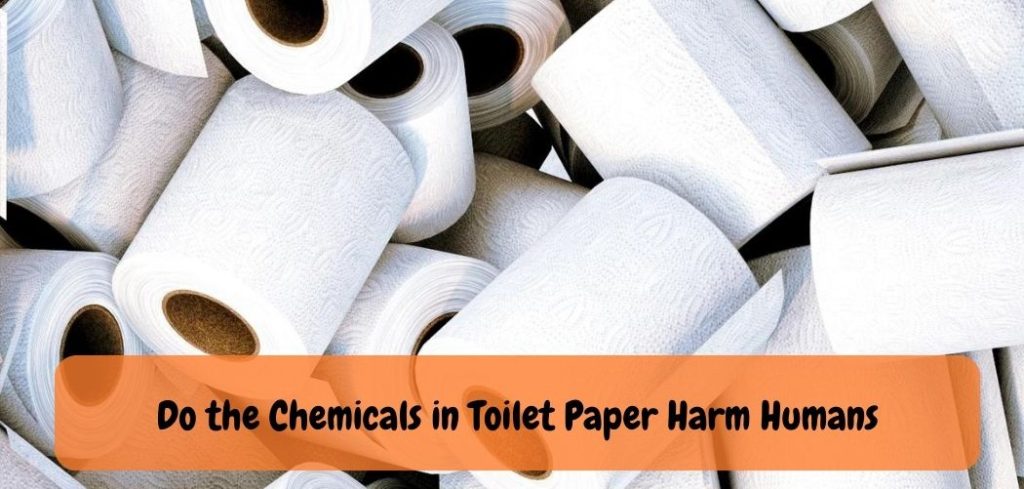Toilet paper is an essential product in most households and public restrooms, but have you ever wondered about the chemicals used in the production of this everyday item?
Although toilet paper is meant to be a disposable and safe product, there are concerns about the use of harmful chemicals in its production. The potential negative impacts of these chemicals range from skin irritation to more serious health problems.
In this article, we will explore the potential harmful chemicals in toilet paper and what you can do to minimize your exposure to them.
Smart Guide For: There Harmful Chemicals in Toilet Paper
Toilet paper is an everyday item that is essential for personal hygiene and cleanliness. However, many people are unaware that some toilet paper products contain harmful chemicals. These chemicals can cause skin irritation and more severe health problems. In this informative guide, we will explore the potential harmful chemicals in toilet paper, their impact on health and the environment, and how to avoid them.
Potential harmful chemicals in toilet paper:
1. Chlorine: Chlorine is used to bleach toilet paper to give it a white color. However, the chlorine can react with other compounds in the paper to create dioxins, which are toxic chemicals that can cause cancer and other health problems.
2. Formaldehyde: Formaldehyde is a preservative that is used to increase the shelf life of toilet paper. However, it is a known carcinogen that can cause cancer and other health problems.
3. Fragrances: Many toilet paper products contain fragrances, which are added to make the product smell better. However, these fragrances can cause skin irritation and other allergic reactions.
Impact on health:
Exposure to harmful chemicals in toilet paper can cause various health problems, including skin irritation, respiratory problems, and even cancer. Fragrances and other chemicals in toilet paper can also cause allergic reactions and trigger asthma attacks. Prolonged exposure to these chemicals can increase the risk of developing more severe health problems.
Impact on the environment:
Toilet paper production can also have a significant impact on the environment. The use of harmful chemicals can pollute waterways and harm aquatic life. Additionally, the production of toilet paper requires a large amount of water, energy, and other resources, contributing to deforestation, climate change, and other environmental issues.
How to avoid harmful chemicals in toilet paper:
1. Look for unbleached or chlorine-free toilet paper: Choose toilet paper that is unbleache or bleached without chlorine to avoid exposure to dioxins and other toxic chemicals.
2. Choose fragrance-free toilet paper: Fragrances can cause skin irritation and other allergic reactions, so choose fragrance-free toilet paper products.
3. Choose eco-friendly toilet paper: Look for toilet paper made from recycled paper or other sustainable materials, such as bamboo.
4. Read the label: Always read the label before purchasing toilet paper to ensure that it does not contain harmful chemicals.
Do the Chemicals in Toilet Paper Harm Humans?

Toilet paper is a widely use product that we all rely on for personal hygiene. But with its constant use, many of us may be wondering if the chemicals in toilet paper can cause harm to humans. The answer is – it depends.
While some types of toilet paper are indeed chemical-free and safe for human use, other varieties contain potentially harmful substances such as chlorine bleach or formaldehyde. Chlorine bleach is often adde to toilet paper to make it look whiter, but research has shown that this substance can cause irritation and damage to the skin when present in large concentrations. Formaldehyde, meanwhile, can have serious health implications if inhale over long periods of time; however, most manufacturers now produce formaldehy-free versions of their products so that people don’t have to worry about being exposed to this dangerous chemical while using the bathroom.
Ultimately, whether or not the chemicals present in certain brands of toilet paper pose a risk will depend largely on how much contact you have with them during your regular routine – if you’re only using one type at home then chances are there won’t be any significant health risks involve – but those working in an environment where multiple types are available should pay close attention to what they’re purchasing and ensure that no hazardous materials are present before making their purchase decision.
What Toilet Paper is Chemical Free?

Toilet paper is an essential part of modern life, but many people are concerne about the chemicals use to make it. Fortunately, there are now several brands that offer chemical free toilet paper options. These products use natural fibers like bamboo and sugar cane to create a soft and comfortable experience without any harsh or dangerous chemicals.
Some manufacturers even go a step further by using chlorine-free bleaching processes for their toilet papers, which eliminates the need for extra bleach in the production process. Additionally, these eco-friendly options often come at no additional cost compared to traditional toilet paper – making them an affordable option for everyone looking for a healthier alternative.
Top Toxic Toilet Paper | Toxins In Toilet Paper | What to Buy and Avoid
Conclusion
While toilet paper is a necessary and widely use product, it is essential to be aware of the potential harmful chemicals use in its production. Understanding the potential risks associated with these chemicals can help you make informed choices when purchasing toilet paper.
It is also essential to consider more sustainable and eco-friendly alternatives to traditional toilet paper, such as bamboo or recycled paper. By taking steps to minimize exposure to harmful chemicals in toilet paper, we can protect ourselves and our environment.
